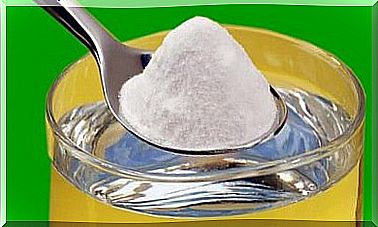Oxidative Stress: What Does It Consist Of?
Oxidative stress seems to be associated with the development of many diseases such as cancer or certain diseases of neurological origin. Find out what it is by reading this article.

Oxidative stress is a process that takes place at the cellular level. It is a complex concept which is defined as deterioration in the cell due to the existence of free radicals. What are free radicals?
Free radicals are molecules or atoms that are able to react with other molecules. They are formed through the use of oxygen to carry out metabolic reactions. This oxygen is involved in many chemical reactions. In addition, our cells use it to perform most of its functions.
These free radicals – because of their high reactivity, can damage the molecules around them if they are not neutralized. In itself, it is oxidative stress. It is the damage produced by these free radicals.
What is oxidative stress?
As we know, oxygen is essential for our life. The cells in our body need it to function properly. What happens is that the oxygen that gets to them turns into reactive molecules after being used up by the metabolism.
These molecules called free radicals are normally neutralized with antioxidant substances. We thus manage to maintain a balance so that there is no damage at the cellular level.
Nevertheless, there are situations in which antioxidants fail to neutralize free radicals. Thus, the latter increase considerably inside the cell. They cause certain harmful changes which accelerate the aging and death of said cell.
It is oxidative stress. What happens at the end of the day is that this damage at the cellular level affects the tissues and, consequently, the organs. This is why we can say that oxidative stress promotes the onset of certain diseases or aging.
What is happening with this oxidative stress?
The main consequence of oxidative stress is the development of many pathologies. For example, there are many carcinogenic processes that arise from this situation.
Likewise, many studies have linked skin aging to oxidative stress. Neurological disorders or cardiovascular diseases can also derive from this problem.
What are the factors in the development of oxidative stress?
As we have mentioned, it is a process that takes place at the cellular level. It is largely due to an insufficient amount of antioxidant substances. We can include these antioxidants in our diet, for example. Food is not the only cause of this phenomenon, however.
There are other factors such as, for example, smoking – passive or active. Other drugs such as alcohol or even medications also seem to be associated with it. In addition, environmental pollution, exposure to sunlight or unbalanced physical activity have also been shown to increase the production of free radicals.
What to do to prevent it?
The ideal is to stay away from the factors mentioned above since we know that they considerably increase oxidative stress. It is essential to stop smoking, to avoid too polluted places and not to seek exposure to the sun to tan.
In addition, we can also reduce oxidative stress by paying attention to our diet. If we include enough antioxidants and are careful what we eat, we can help prevent this from happening. For this, specialists recommend:
- Consume red fruits, vegetables and legumes
- Try to include foods rich in carotene, such as carrots or sweet potatoes, in the diet
- Increase the consumption of foods rich in vitamins A, C and E. For example, tomato, broccoli or lemon are very rich in vitamins
- Use garlic on our plates

The ideal is to follow a balanced diet that has these qualities. Also, it is best not to consume foods high in saturated fat or prepared foods. This should not become obsessive, but we must indeed try to adapt this type of characteristics to our daily lives.
In conclusion
Oxidative stress consists of cellular deterioration produced by many factors. However, we can decrease and control it by adopting healthy eating and habits.
Many diseases seem to be associated with this oxidative stress. So, you can try to pay more attention to your diet and increase the intake of antioxidants. Make sure to consult a nutritionist to be sure you are doing it the right way.









